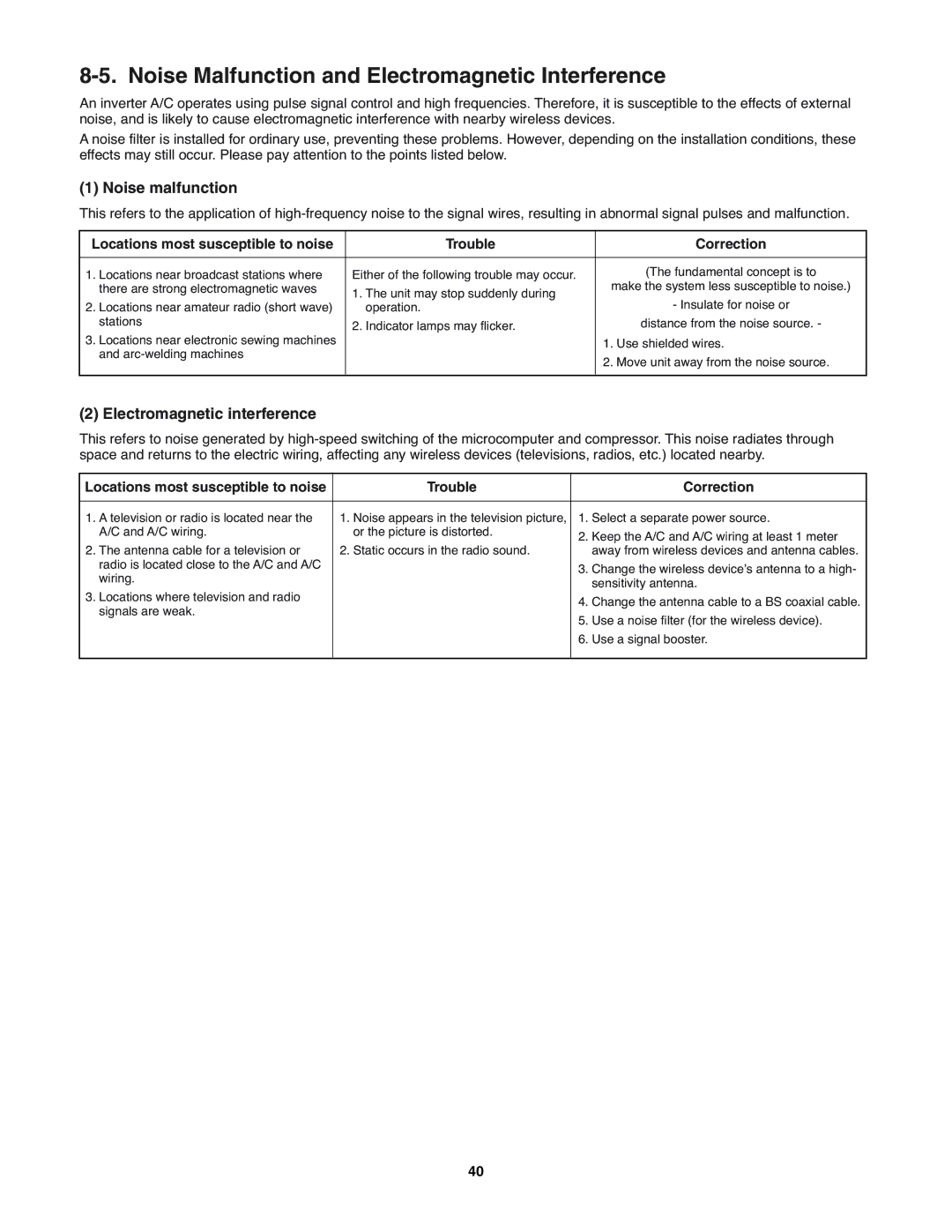8-5. Noise Malfunction and Electromagnetic Interference
An inverter A/C operates using pulse signal control and high frequencies. Therefore, it is susceptible to the effects of external noise, and is likely to cause electromagnetic interference with nearby wireless devices.
A noise filter is installed for ordinary use, preventing these problems. However, depending on the installation conditions, these effects may still occur. Please pay attention to the points listed below.
(1) Noise malfunction
This refers to the application of
Locations most susceptible to noise | Trouble | Correction |
|
|
|
1.Locations near broadcast stations where | Either of the following trouble may occur. | (The fundamental concept is to |
there are strong electromagnetic waves | 1.The unit may stop suddenly during | make the system less susceptible to noise.) |
| - Insulate for noise or | |
2.Locations near amateur radio (short wave) | operation. | |
stations | 2.Indicator lamps may flicker. | distance from the noise source. - |
3.Locations near electronic sewing machines |
| 1.Use shielded wires. |
and |
| 2.Move unit away from the noise source. |
|
| |
|
|
|
(2) Electromagnetic interference
This refers to noise generated by
Locations most susceptible to noise | Trouble | Correction |
|
|
|
1.A television or radio is located near the | 1.Noise appears in the television picture, | 1.Select a separate power source. |
A/C and A/C wiring. | or the picture is distorted. | 2.Keep the A/C and A/C wiring at least 1 meter |
|
| |
2.The antenna cable for a television or | 2.Static occurs in the radio sound. | away from wireless devices and antenna cables. |
radio is located close to the A/C and A/C |
| 3.Change the wireless device’s antenna to a high- |
wiring. |
| |
| sensitivity antenna. | |
3.Locations where television and radio |
| |
| 4.Change the antenna cable to a BS coaxial cable. | |
signals are weak. |
| |
| 5.Use a noise filter (for the wireless device). | |
|
| |
|
| 6.Use a signal booster. |
|
|
|
40
